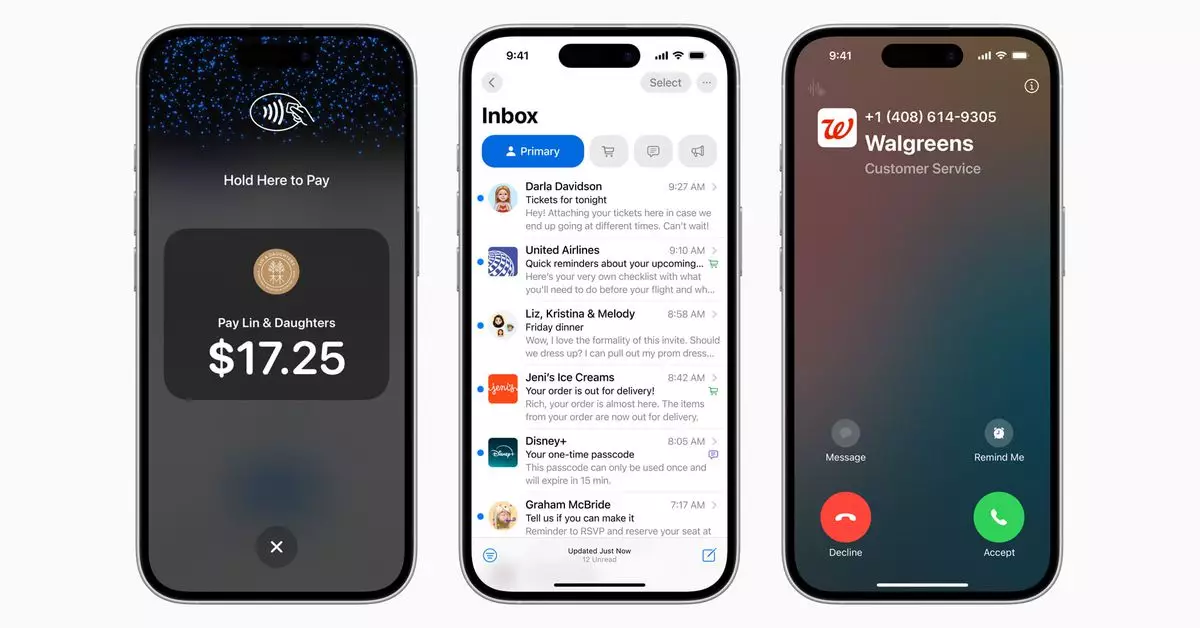In a rapidly evolving digital landscape, where personalization plays an increasingly crucial role in connecting brands with consumers, Apple is gearing up to empower businesses with its innovative Business Connect tool. This new feature will allow companies to craft a distinctive identity in emails, phone calls, and payment notifications through the seamless integration of brand logos and names on the iPhone.
Apple’s announcement heralds a significant shift in how businesses can interact with customers via their devices. By enabling brands to customize how they appear across various Apple applications such as Mail, Contacts, and Wallet, the company is not only enhancing user experience but also adding a layer of authenticity to business communications. This functionality is especially vital in an era where spam and phishing attacks are rampant, causing skepticism among consumers regarding unsolicited calls and emails.
Branded Mail, a feature businesses can enroll in today, aims to streamline this process. Similar to how Gmail has implemented verified logos to indicate the authenticity of senders, Apple’s approach will simplify the identification of legitimate brands in a crowded inbox. This reinforcement of trust is vital—not only does it encourage consumer interaction with businesses, but it may also boost overall visibility and engagement for brands that take advantage of this tool.
One of the standout features of Business Connect is the Business Caller ID. With this option, businesses can display their name, logo, and relevant department during inbound calls to iPhones. This innovation is a game changer; it arms users with the knowledge to discern whether an incoming call is spam or a genuine business inquiry. As phone scams proliferate, this feature can empower consumers and ultimately lead to increased transparency in business communications. The rollout is anticipated next year and could dramatically shift customer perceptions regarding call legitimacy.
Moreover, Apple is enhancing its Tap to Pay service, which will allow businesses to showcase their logo when accepting payments. Rather than simply presenting a generic category icon, this change will enable merchants to reinforce their brand at the critical moment of transaction. In the competitive retail sector, every touchpoint between a brand and consumer counts, and this subtle yet impactful upgrade could influence customer loyalty and recognition.
Beyond the immediate advantages for businesses, the strategic implications of Business Connect are noteworthy. By aggregating verified business data through its various services—Maps, Messages, and Siri—Apple is enhancing its ecosystem while potentially setting the stage for future innovations. In a landscape dominated by tech giants like Google, this could also be a precursor to Apple entering the search engine arena, offering consumers an alternative that integrates better with its expansive suite of products.
Ultimately, Apple’s Business Connect has the potential to redefine how businesses engage with consumers, fostering a greater sense of trust and reliability. As companies increasingly seek to stand out in an overcrowded digital marketplace, these tools may be essential for building and maintaining brand reputation.

